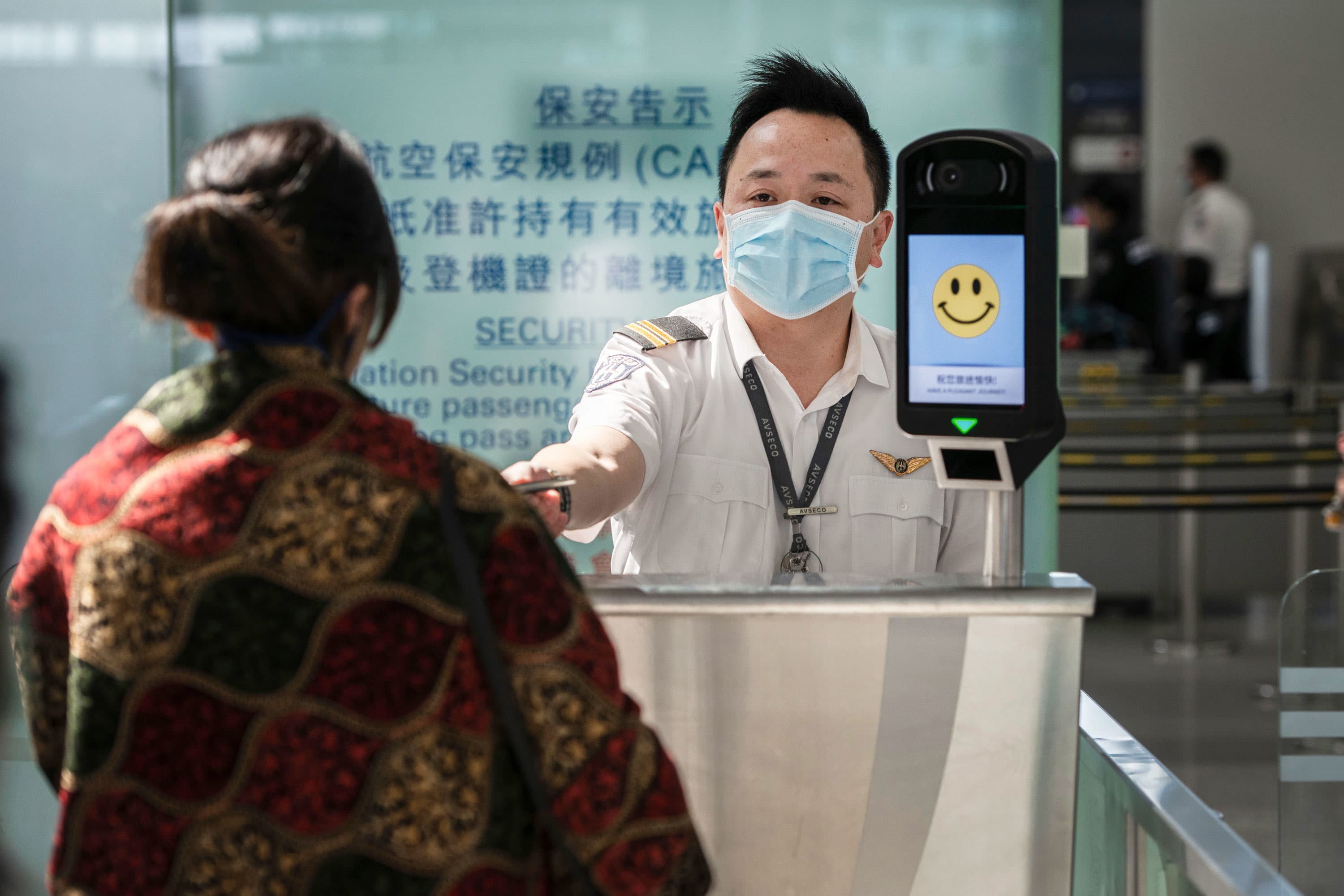The Trump administration’s sweeping new travel restrictions aimed at combating the spread of the new coronavirus — announced Friday — took effect on Sunday afternoon, leaving airline employees around the world scrambling to enforce them.
More than 17,200 people have fallen ill to the coronavirus worldwide so far, killing at least 361 people in China and a 44-year-old man in the Philippines, according to international health officials.
The new travel rules prohibit foreigners who have been in China in the last 14 days from entering the U.S., unless they are an immediate family member of a U.S. citizen, a permanent resident or meet other exemptions. The U.S. is imposing a 14-day quarantine on citizens who have visited China’s Hubei province — where Wuhan, the epicenter of the virus, is located — and self-quarantines for citizens who have been in China over the last 14 days. Hong Kong and Macau are exempt, according to the president’s proclamation.
The Transportation Security Administration on Sunday instructed airlines with flights to the U.S. from other countries to screen passengers before boarding to find out whether they’ve been in China recently, according to a security directive that was reviewed by CNBC. Check-in and gate agents or other employees are required to question travelers, look through recent reservations and possibly their passports for entry or exit stamps, according to the order, which provided examples of the stamps from China.
Airlines recommended U.S.-bound travelers arrive at airports earlier than usual.
TSA noted that it is not involved in screening air travelers bound for the U.S. from abroad but an agency spokeswoman said it “is requiring carriers to enforce portions of the President’s proclamation that limit who may board a commercial aircraft destined for the United States.”
The airlines don’t solely have to rely on passenger answers and must work with U.S. Customs and Border Protection to make a determination, the spokeswoman said.
The restrictions are complex and will mean all travelers headed to the U.S. will likely get questioned, not just people coming directly from China, from where many carriers have already cut routes. From Mexico City to Rome to Dubai, airline staff or their local contractors will have to question all travelers before they can board a U.S.-bound flight in case they had traveled from China to another country before their flight to the U.S.
The screening will apply to tens of thousands of travelers a day as a result. U.S. Customs and Border Protection figures show it processed an average of 371,780 people at U.S. airports each day in the last fiscal year, although February travel demand is much lower than in the summer. Some 14,000 people flew into the U.S. from China each day that year.
Foreign travelers who fall under the U.S. restrictions will be denied boarding. The U.S. citizens and permanent residents who have been in China in the last 14 days must be rerouted into one of 11 airports — Atlanta, Chicago’s O’Hare, Los Angeles International, San Francisco International, Honolulu, Seattle, Newark, Washington Dulles, Detroit, Dallas/Fort Worth, and New York’s Kennedy Airport — for enhanced screening.
“We realize this could provide added stress and prolong travel times for some individuals, however public health and security experts agree these measures are necessary to contain the virus and protect the American people,” DHS acting Secretary Chad Wolf said in a statement on Sunday. “To minimize disruptions, CBP and air carriers are working to identify qualifying passengers before their scheduled flights. Once back in the U.S., it’s imperative that individuals honor self-quarantine directives to help protect the American public.”
That means that if a U.S. citizen was in China and then traveled to Dublin with a later flight to Boston, the carrier would need to rebook them to one of those designated U.S. airports so they could be screened on arrival.
Such a system relies on the self-reporting by passengers and how much information airline employees can confirm.
“It’s an imperfect system,” said Henry Harteveldt, founder of travel consulting firm Atmosphere Research Group. “This is not the best approach. It relies on the honor system and some passengers are just not going to be truthful.”
It’s not the first time airline employees have been tasked with enforcing new rules for travelers. Gate agents and others have had to screen travelers for what has been sometimes confusing restrictions, such as the 2017 in-cabin electronics bans and outright bans on citizens of several nations.
Failing to follow restrictions can be costly as airlines are responsible for flying individuals without accepted documents back. They can also face fines of around $3,500, according to the International Air Transport Association, an airline trade group.
